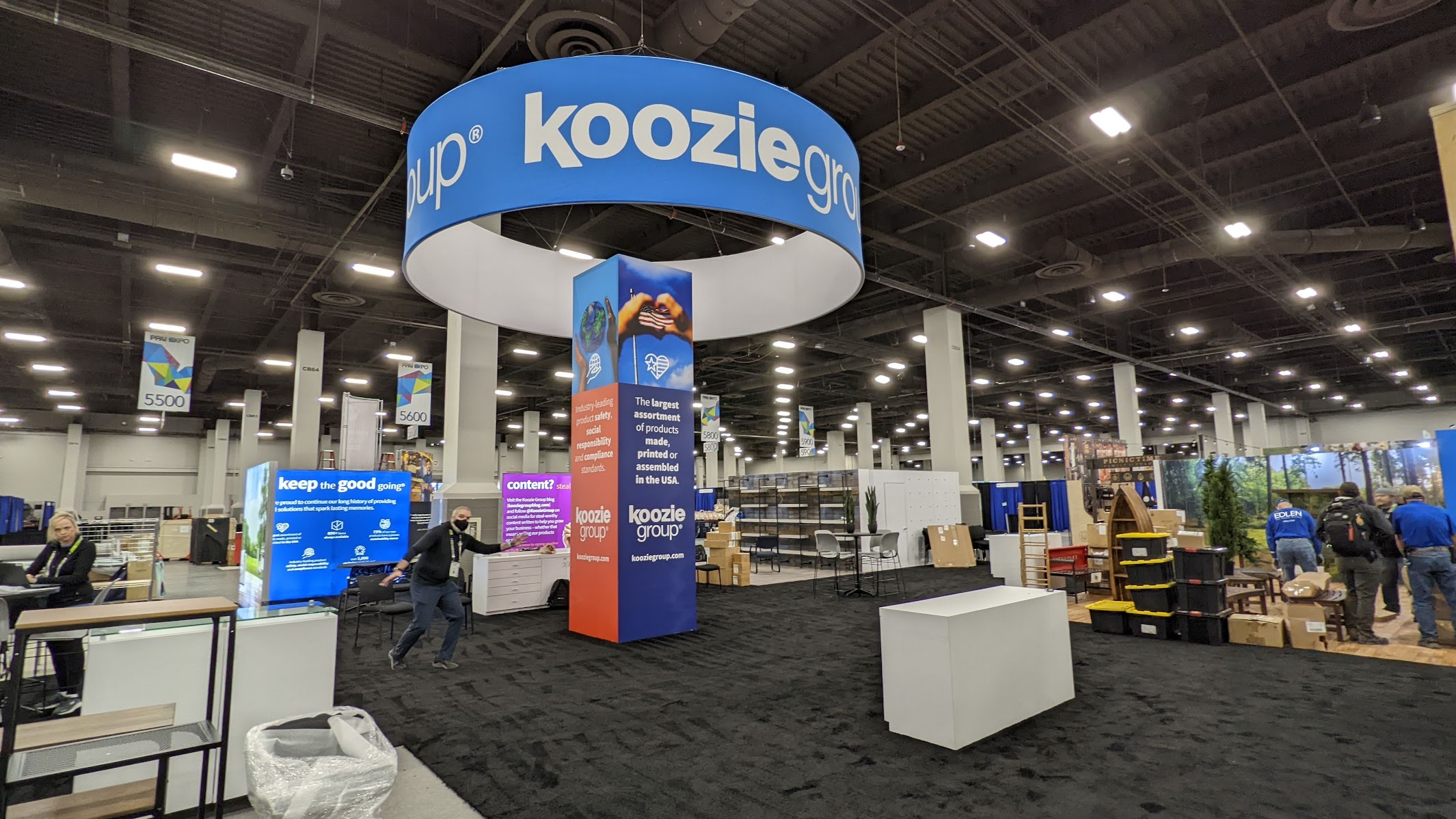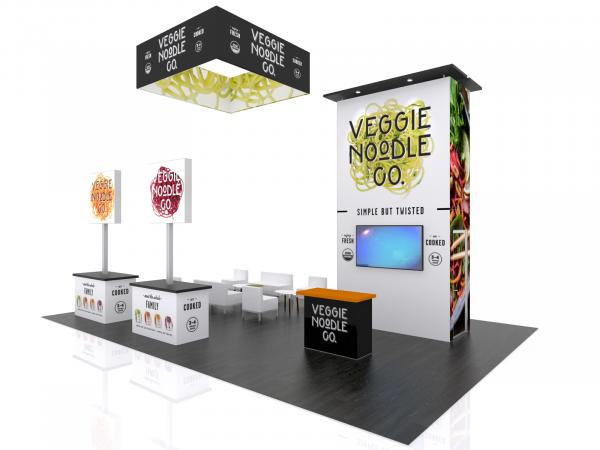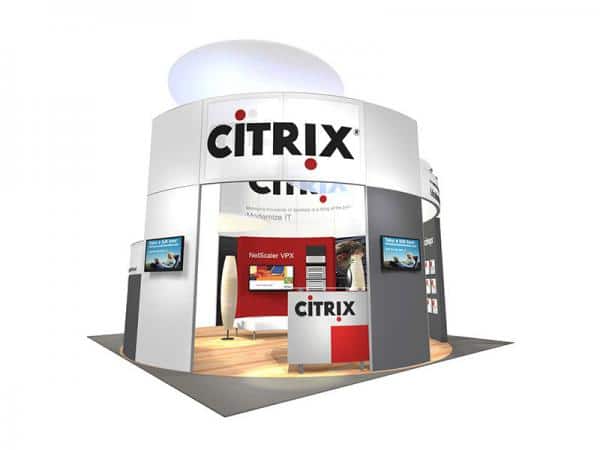If you think that trade shows are obsolete –do so at your own peril. Even today, these fairs are essential to the functioning of the business world, and a very effective tool for both sellers and buyers.
To be surrounded by the leading companies in your industry, witnessing them unveil their latest and best innovations, in an engaging and collaborative environment, is something that every entrepreneur should experience at least once during their professional careers.
What is a Trade Show?
An industry trade show is sponsored by the trade sponsors for that particular industry. The objective behind conducting these shows is to create hype and buzz while bringing all the major industry players under a common roof, thereby giving them the chance to interact and collaborate with each other, learn more about upcoming trends and innovations, and increase their customer bases.
Are Trade Shows Open to the Public?
Trade shows are elusive events, meaning that, in most cases, they are not open to the general public. People who are typically permitted to attend the show are company representatives, leading professionals from within the industry, and the press and media.
Attendees enjoy access to the latest tech, special pricing, newest features, and valuable information and insight about the industry. Companies, meanwhile, get the chance to display and demonstrate their products, generate leads and build lasting relationships, receive press coverage, create brand awareness, and execute business deals.
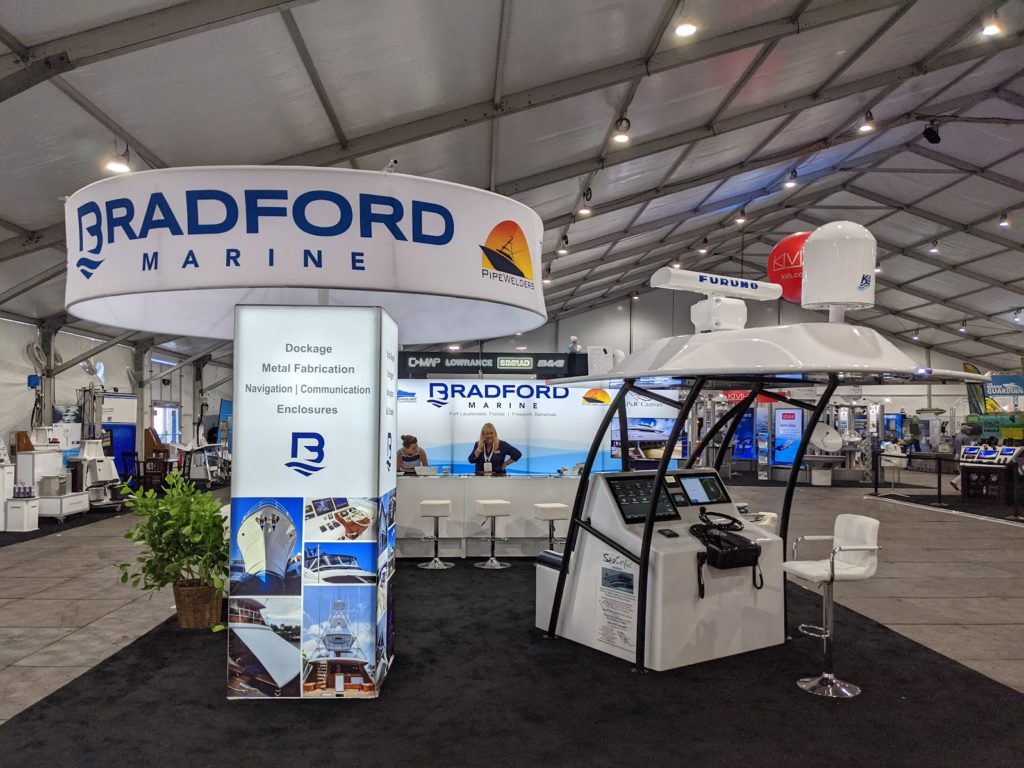
Why Should You Consider Exhibiting at Trade Shows?
There are many reasons why you might want to exhibit at a trade show, such as:
1) Sales:
Often, the primary reason that businesses attend trade shows is to sell a certain quantity of their products. In fact, for many companies, the sole criterion of a trade show success is being able to meet or exceed their predetermined sales quota. Keep in mind that, since the general public is not allowed to attend these shows, the attendees are extremely targeted and are likely to already be a part of your shortlist.
2) Brand Awareness:
Trade shows are undoubtedly one of the best ways to make the masses aware about your brand and offerings –especially if those shows are attended by press representatives and the leading industry professionals and experts. Sharing your company vision and initiatives with key industry players while letting them interact with your offerings, is an excellent way to develop and expand your brand presence.
3) Lead Generation:
Businesses need leads that they can then go on to convert into purchasers. Hence, lead generation is essential for any sales person. Trade shows give you the chance to interact and develop relationships with people who are completely new to your brand and offerings. You can use this opportunity to impress them with your product/services, brand message, and company values and vision. As you are probably aware, selling face-to-face is a lot easier than it is through indirect methods like phone calls or emails. Hence, by establishing strong relationships with the trade show attendees, following up and doing business with these people becomes a lot easier for businesses in the future.
By helping them exhibit their products to a large and relevant audience, trade shows allow businesses to generate plenty of healthy leads.
4) Engagement with Current Customers:
Your current customers trust you, and are therefore likelier to invest in any new products or services that you introduce. For this reason, it is vital that you stay connected to these customers and keep offering them unique services and benefits.
5) Determining the Product-Market Match:
Your new product likely benefits both existing and new buyers. However, a trade show provides you with the opportunity to better determine the sets of customers that are the likeliest to use your upcoming offerings.
6) Account-Based Marketing:
Part of preparing for a trade show is determining the kind of people that you want to give your most attention to. This allows you to come up with a strategy that will maximize your chances of converting those people into leads or customers.
7) Feedback:
Trade shows are attended by some of the most knowledgeable and informed people from the industry, which means that they provide a supreme chance for you to learn more about how you can improve your product/services, sales, marketing, and brand message.
8) Industry Insight:
A trade show is perhaps the best way to get up-to-date about the latest goings-on in your industry, as well as learn more about where the industry is headed. Learning from some of the best minds in the industry and being in the same space with many of your fiercest business rivals, presents an invaluable opportunity.
Take a stroll around the exhibition floor and make a note of your competitors’ strengths and weaknesses. Remember that, at a trade show, you can act as both a business representative and a customer, which provides you with the golden opportunity to learn more about your rival products’ pricing, key features, and obtain other valuable information. You will not get a better chance to understand your competitors’ tactics and strategies, and how you can nullify them.
What Happens at a Trade Show?
A trade show usually begins after an event program, and would consist of breakout and speaker sessions. It is important to provide value to the attendees, and ensure that they do not use up all their time simply walking all over the exhibition floor.
Typically, a trade show would have the following:
Workshops:
These are activities or discussions revolving around a specific industry topic or theme.
Networking Events:
Sometimes, trade shows have networking events scheduled for during or after the main show.
Breakout Sessions:
Businesses can have breakout sessions in workshops, where larger groups split into smaller ones to discuss specific ideas or themes, and then come back together to compare notes.
Media Opportunities:
This might come at an added cost, but a bit of extra promotion can go a long way in building awareness about your brand, company, and product or service.
Speaker Sessions:
Speakers, generally someone with a lot of knowledge about the industry as a whole or a specific subset, are invited to address the audience. Popular speakers, all on their own, can pull large crowds to the trade fair.
How Should I Prepare for a Trade Show?
The opportunities to exhibit at trade shows are few and far between, and the last thing that you want to do is be inadequately prepared. Below are a few essential boxes that you should check off before attending the event:
Space:
Perhaps the most important thing for a business attending a trade show is to make sure that they have a floor space locked down. You do not want to go through all the hassle and show up to the event only to be told that there is literally nowhere that you can set up.
Travel Plans:
Determine the mode of transport that you will be using to attend the event, and make arrangements accordingly. Make sure that your conveyance plans and arrangements are in place well before the event, and that you are not banking on being able to secure a plane, train, or bus ticket at the last second.
Accommodation:
If you will be staying over (which you are likely to do so, considering that these events are multiple days long), make sure that you have adequate accommodation arrangements for yourself and your staff.
Staff:
Speaking of staff, the staff members that you plan to take with you to the trade show should be informed about the event before time (preferably, before you sign up for the event). This way, they will have sufficient time to prepare, and manage their other commitments accordingly.
You do not want to have to tell your staff that they will have to cancel their long-awaited holiday and accompany you to the trade show.
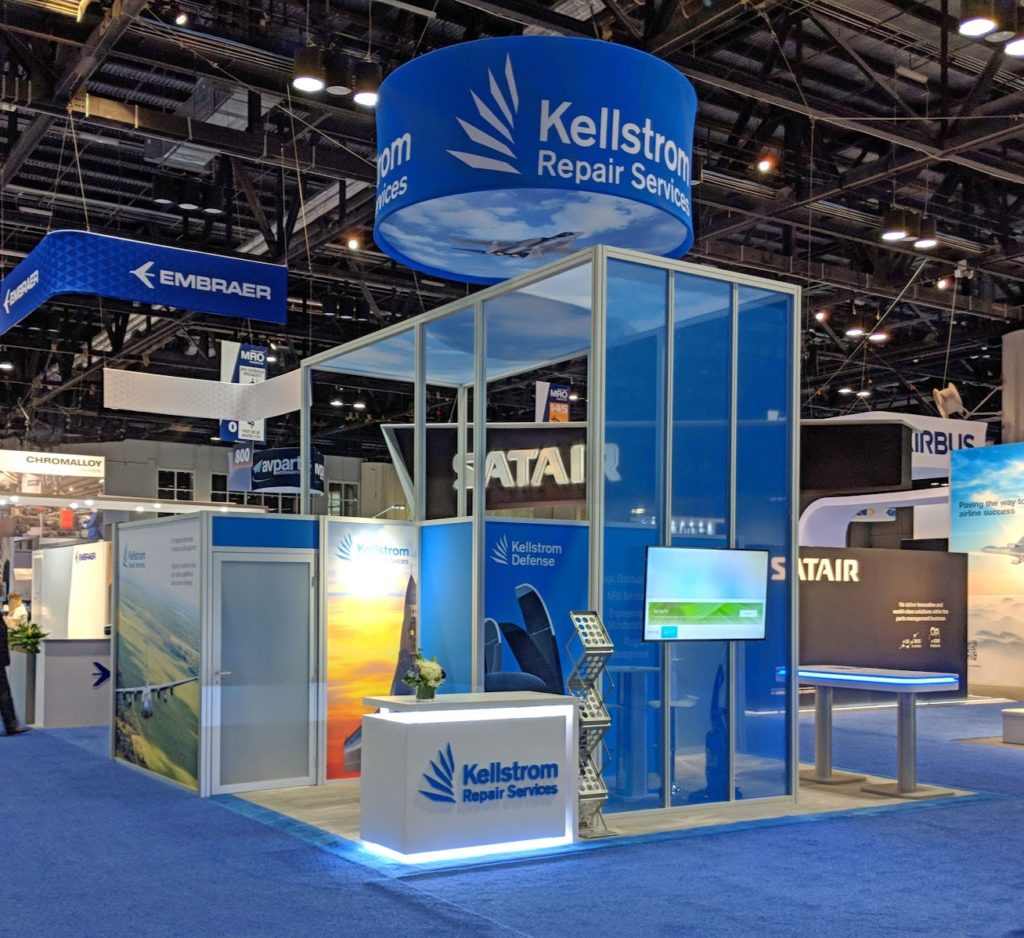
How to Make the Most of a Trade Show?
1) Attend the Right One:
Spend a bit of time going through the trade show’s website and obtaining essential information. For instance, go through the list of companies that will be attending the event, and if any of those companies are potential licensees. Remember to cross-reference the attendees list with your shortlist of potential licensees.
Also, see if the trade show has been around for long or has only commenced recently. If you know of other people or businesses who have attended this event in the past, reach out to them and learn more about their experience.
You must also take the reputation of the exhibition into account. The more reputed and renowned a trade show is, the more prestigious the attendees list and the larger the media coverage is likely to be.
2) Be Smartly Frugal:
Do not spend extravagantly, but also do not let an overly-rigid budget get in the way. Sign up for a few conferences as an attendee before you shell out the big bucks for the exhibition. Look up conferences close to your residence and, if you have to make accommodation arrangements, consider using AirBnB or even crashing with some friends or relatives in order to save money.
Also, the registration fees for these conferences can be quite expensive, so make sure that you do your best to get any possible discounts.
3) Dress Accordingly:
The more appropriately you are dressed for the event, the more seriously you are likely to be taken by the attendees. For most industries, a sports coat will work just fine. But, for certain industries (fitness and sports, for instance), you need to pay closer attention to what you wear.
Also, a piece of advice: carry two pairs of comfortable footwear, and use them on alternative days. Like we mentioned, these events last for a few days, and involve a lot of walking around the exhibition floor.
4) Keep Plenty of Business Cards and Sell-Sheet Copies with You:
During the course of the trade shows, you can run into an important contact pretty much anywhere, including the lobby, bar, or even the elevator. No opportunity is worth missing, which is why it is better to be over-prepared than to rue missed chances.
5) Schedule Meetings:
Acquaint yourself with the show organizers, vendors, and industry experts well in advance. Introduce yourself and see if you can get a few minutes of their time while at the exhibition.
You could start building connections right away by reaching out to them through LinkedIn and emails (if you send a LinkedIn message and an email at the same time, your chances of getting a response go up significantly).
Before turning to cold emails, see if you have any mutual connections that could make the introduction process smoother.
Also, avoid sending lengthy messages (not more than five sentences).
6) Avoid Approaching Packed Booths:
Try your best to not approach booths when they are jam-packed with people, as that will lower your chances of attracting the right person’s attention (and even if you do manage to get their attention, it will be divided at best). Hence, we recommend visiting the majority of the booths on the second day of the event.
However, we also recommend not waiting until the third day, since a lot of businesses might have left the exhibition by then.
7) Know what you want:
On your way to the exhibition, revisit your primary objectives and critical targets. This will allow you to show up to the fair with a laser-sharp focus; it does not take much for one to be distracted by the sheer number of attendees, the overwhelming number and types of sessions, and free food and drinks. It is important to not forget that your reasons behind attending the exhibition are learning, generating sales and leads, and establishing new connections.
Mistakes to Avoid at a Trade Show:
1) Not Setting Goals:
A study conducted by the Exhibitor Media Group revealed that just 35% of trade show exhibitors compare their trade-fair lead generations against the number of closed sales.
If you do not have measurable and quantifiable objectives, there will be no way for you to determine if your trade show efforts were a success or not. Remember the SMART (Specific, Measurable, Achievable, Realistic, and Time-Specific) while establishing your trade show or other business or personal objectives.
That said, your goals need not be overly complex – in fact, the simpler they are, the easier it is for you to determine the extent to which they were achieved. Something like ‘generate at least 30 new leads’, ‘close a minimum of five sales’, or ‘increase website traffic by 25% within two weeks of the trade show’ work well. You could even have non-financial objectives such as ‘improve relationships and brand awareness by interacting with at least 100 prospects and 20 existing clients’.
2) Not Setting the Right Budget:
An Exhibitor Online budget revealed that, on average, exhibitors spend 33% of their total trade show budget on just the booth space. This means that this amount does not include the staff, logistics, exhibition stand, and show service costs.
For instance, as far as staff costs are concerned, you need to make provisions for the staff’s pay, accommodation, and training. For show services, if your organizer does not include WIFI or utilities into your booth’s rental cost, you will need to make those arrangements yourself.
The logistics can also vary greatly depending upon your stand type. For instance, modular exhibition stands are significantly less costly than customized ones. Other logistics costs include customs, storage, and insurance.
3) No or Inadequate Storage:
Adequate storage ensures that your booth comes across as professional, clean, and clutter-free. The space should be large enough for you to be able to store your business cards, pamphlet boxes, and other promotional collateral. Your staff should also be able to store their essential belongings.
4) Adding Excessive Information to the Graphic:
Graphic clutter is a common mistake, especially for newer entrepreneurs attending their first trade show.
There are two three types of graphic clutters: informational clutter, messaging clutter, and photo clutter. Informational clutter occurs when managers or design experts try stashing as much information as possible into your graphic. They feel that the more information the graphic contains, the more informative the graphic will be for their prospects.
Unfortunately, the opposite is true: the more information present in the graphic, the less likely it is to get your prospects’ attention. Your prospects will get bored by the time they get through the second or third line of text. This means that they will probably miss out on the crux of the message, and will ignore your booth just like they ignored your graphic.
Messaging clutter, meanwhile, is when the business does not have a sharp and focused message. Below is an example of a cluttered message:
Banking services for students and professionals
Brokerage services for stock, bond, and real-estate investors
Financial planning advisory services for individuals with high net-worth
Every line sends a completely different message; is this business a bank, a brokerage firm, or a financial advisory company?
The final type of clutter, photo clutter, occurs when businesses try to squeeze in as many pictures as possible into its booth under the misguided impression that the photos will make the booth seem lively and vibrant. However, when it comes to images, less is usually more, and one or two images are likelier to do a far better job than a 100-picture collage.
The way to avoid all three types of clutter is to come up with a concise and clear message that the prospect can comprehend within three seconds. Combine this message with an image or two that instantly grabs the prospects’ attention as they walk past your booth. Remember that you are competing against the very best of your industry, which means that your prospects’ attention is at a premium.
5) Not Conducting any Pre-Event Marketing:
The event organizer’s job is to get people to attend the show; it is your job to get those people to visit your booth.
Another common rookie mistake is to just set up the booth and hope and pray that the attendees will walk up to them with wonder, curiosity, and intrigue in their eyes.
Experienced exhibitors know that this is worse than wishful thinking, and commence their marketing efforts weeks (or even months) before the date of the exhibition.
Approximately 85% exhibitors conduct pre-event marketing and, out of those who do, 82% experience an increase in booth traffic.
6) Not Bringing the Dream Team:
The staff that you pick to represent your company at the event will go a long way in determining your trade exhibition success – particularly if it is a B2B show.
First-time exhibitors tend to think that the booth staff’s job is nothing more than to hand out brochures or business cards – and they often hire temporary workers for this purpose. What these exhibitors understand the hard way is that the booth staff is the face of their business and brand during the entirety of the trade event. Every time this temporary staff stutters, hesitates, or goes blank at a potential client’s question, the potential client turns into a missed opportunity for your business. Getting your main staff to try and salvage the situation after the trade show is unlikely to help.
The ideal booth employees should have the following characteristics/abilities:
- Ability to qualify visitors
- Engaging attendees without coming across like snake oil salespeople
- Identifying and extracting the visitors’ pain points
- Ability to convey how the business’ solution will address those pain points
- The right attitude and trade show-etiquettes.
Final Word:
To sum up, a trade show provides a tremendous opportunity for businesses to promote their brand and offerings, see what their rivals are up to, pick some of the best and most knowledgeable minds in the industry, strengthen current relationships while establishing new ones, and get a handle on current and expected industry happenings. We hope that this blog helped you understand what a trade show is, how you can prepare and make the most of one, and the banana skins that you should avoid.
Learn More About Trade Shows:
- Learn about the Top 20 trade shows in Miami from our guide.
- Searching for the premier medical trade shows to join? Explore our informative blog entry showcasing the 26 top medical trade shows held in Florida.
- Interested in Orlando trade shows? Explore a wide variety of the Top 35 trade shows in Orlando.
- Uncover novel business possibilities along the eastern coast of the United States and take part in a trade shows in Florida.
- In Dallas trade shows are common, bringing together different businesses looking to showcase their products and connect with their customers. Read our guide!
- Explore our expert trade show guide to elevate your upcoming trade show experience using our extensive industry knowledge. Delve deeper into the details in our informative guide!
- Choosing a trade show, especially when you have too many options available, can be tricky. Read our guide on how to choose a trade show.
- Are trade shows worth it? See our latest blog post.
- Looking for the top Los Angeles trade shows? Explore our curated selection of the finest trade events in LA.
- Are you familiar with the best trade show convention centers? Discover them in our blog post.
- Curious about the role of trade show models? Explore our comprehensive guide!
- Trade show marketing is a powerful way for businesses to showcase their products and services, meet new customers, and connect with other businesses. Read our guide!
- Interested in the White Label World Expo in Las Vegas? Read more in our blog post.

It’s in the name! Everything Tradeshows is your one-stop shop for all things trade shows, including booth purchases, booth rentals, and complete brand management services. Ready to get started? Have questions? Get in touch by calling us at (954) 791-8882 or by filling out the form below. We can’t wait to hear from you!

